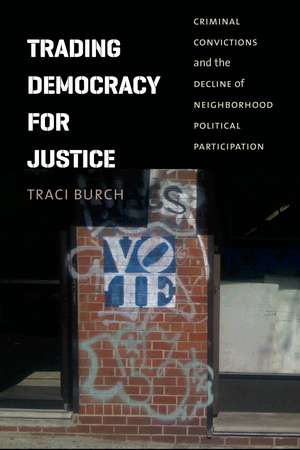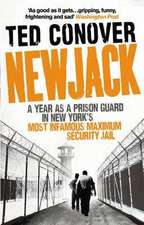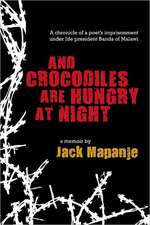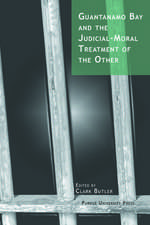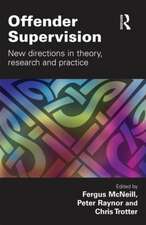Trading Democracy for Justice: Criminal Convictions and the Decline of Neighborhood Political Participation: Chicago Studies in American Politics
Autor Traci Burchen Limba Engleză Paperback – 21 aug 2013
The United States imprisons far more people, total and per capita, and at a higher rate than any other country in the world. Among the more than 1.5 million Americans currently incarcerated, minorities and the poor are disproportionately represented. What’s more, they tend to come from just a few of the most disadvantaged neighborhoods in the country. While the political costs of this phenomenon remain poorly understood, it’s become increasingly clear that the effects of this mass incarceration are much more pervasive than previously thought, extending beyond those imprisoned to the neighbors, family, and friends left behind.
For Trading Democracy for Justice, Traci Burch has drawn on data from neighborhoods with imprisonment rates up to fourteen times the national average to chart demographic features that include information about imprisonment, probation, and parole, as well as voter turnout and volunteerism. She presents powerful evidence that living in a high-imprisonment neighborhood significantly decreases political participation. Similarly, people living in these neighborhoods are less likely to engage with their communities through volunteer work. What results is the demobilization of entire neighborhoods and the creation of vast inequalities—even among those not directly affected by the criminal justice system.
The first book to demonstrate the ways in which the institutional effects of imprisonment undermine already disadvantaged communities, Trading Democracy for Justice speaks to issues at the heart of democracy.
Din seria Chicago Studies in American Politics
-
 Preț: 184.18 lei
Preț: 184.18 lei -
 Preț: 200.26 lei
Preț: 200.26 lei -
 Preț: 200.74 lei
Preț: 200.74 lei -
 Preț: 184.22 lei
Preț: 184.22 lei -
 Preț: 139.51 lei
Preț: 139.51 lei -
 Preț: 199.68 lei
Preț: 199.68 lei -
 Preț: 181.43 lei
Preț: 181.43 lei -
 Preț: 184.55 lei
Preț: 184.55 lei -
 Preț: 200.74 lei
Preț: 200.74 lei -
 Preț: 238.41 lei
Preț: 238.41 lei -
 Preț: 214.41 lei
Preț: 214.41 lei -
 Preț: 238.12 lei
Preț: 238.12 lei -
 Preț: 200.53 lei
Preț: 200.53 lei -
 Preț: 184.88 lei
Preț: 184.88 lei -
 Preț: 186.99 lei
Preț: 186.99 lei -
 Preț: 187.09 lei
Preț: 187.09 lei -
 Preț: 185.51 lei
Preț: 185.51 lei -
 Preț: 154.99 lei
Preț: 154.99 lei -
 Preț: 184.84 lei
Preț: 184.84 lei -
 Preț: 222.81 lei
Preț: 222.81 lei -
 Preț: 264.38 lei
Preț: 264.38 lei -
 Preț: 245.91 lei
Preț: 245.91 lei -
 Preț: 219.11 lei
Preț: 219.11 lei -
 Preț: 244.51 lei
Preț: 244.51 lei -
 Preț: 262.29 lei
Preț: 262.29 lei - 23%
 Preț: 676.12 lei
Preț: 676.12 lei -
 Preț: 142.44 lei
Preț: 142.44 lei - 23%
 Preț: 569.99 lei
Preț: 569.99 lei - 23%
 Preț: 579.86 lei
Preț: 579.86 lei - 23%
 Preț: 580.45 lei
Preț: 580.45 lei -
 Preț: 248.79 lei
Preț: 248.79 lei -
 Preț: 493.87 lei
Preț: 493.87 lei -
 Preț: 266.29 lei
Preț: 266.29 lei -
 Preț: 137.72 lei
Preț: 137.72 lei -
 Preț: 230.71 lei
Preț: 230.71 lei -
 Preț: 263.71 lei
Preț: 263.71 lei -
 Preț: 258.74 lei
Preț: 258.74 lei -
 Preț: 257.00 lei
Preț: 257.00 lei -
 Preț: 265.76 lei
Preț: 265.76 lei -
 Preț: 233.98 lei
Preț: 233.98 lei
Preț: 234.24 lei
Nou
Puncte Express: 351
Preț estimativ în valută:
44.82€ • 46.80$ • 37.10£
44.82€ • 46.80$ • 37.10£
Carte tipărită la comandă
Livrare economică 04-18 aprilie
Preluare comenzi: 021 569.72.76
Specificații
ISBN-13: 9780226064932
ISBN-10: 022606493X
Pagini: 272
Ilustrații: 11 halftones, 50 line drawings, 22 tables
Dimensiuni: 152 x 229 x 28 mm
Greutate: 0.4 kg
Editura: University of Chicago Press
Colecția University of Chicago Press
Seria Chicago Studies in American Politics
ISBN-10: 022606493X
Pagini: 272
Ilustrații: 11 halftones, 50 line drawings, 22 tables
Dimensiuni: 152 x 229 x 28 mm
Greutate: 0.4 kg
Editura: University of Chicago Press
Colecția University of Chicago Press
Seria Chicago Studies in American Politics
Notă biografică
Traci Burch is assistant professor of political science at Northwestern University and research professor at the American Bar Foundation. She is a coauthor of Creating a New Racial Order. She lives in Chicago, IL.
Cuprins
Preface
1 Introduction
2 Theory
3 A First Look: Imprisonment and Community Service
4 Neighborhood Criminal Justice: Context and Political Participation
5 Exploring Mechanisms
6 Can Mobilization Help?
7 State Police Power and Citizen Political Power
Appendix
Notes
References
Index
1 Introduction
2 Theory
3 A First Look: Imprisonment and Community Service
4 Neighborhood Criminal Justice: Context and Political Participation
5 Exploring Mechanisms
6 Can Mobilization Help?
7 State Police Power and Citizen Political Power
Appendix
Notes
References
Index
Recenzii
“Traci Burch has tackled a public issue that threatens the very basis of democracy—the tendency of criminal convictions to taint the democratic involvement of those left behind—and done so in rigorous and creative ways. Trading Democracy for Justice is a splendid work of social science that will be widely read and cited and whose astonishing findings will expand our attention to the ways incarceration affects people beyond those convicted of crimes.”
“Trading Democracy for Justice is social science at its best and is sure to be an instant classic. Traci Burch is one of a handful of political scientists working to shed new light on one of the most important problems of our time: the political demobilization that occurs in poor minority neighborhoods as a result of the unprecedented incarceration of young black men. The book is an outstanding achievement.”
“The present correctional population reflects over four decades of the incredible growth of the criminal justice system, and an emerging body of research has established incarceration as a power engine of social inequality. Burch provides a strong contribution and extension to this line of research by examining the myriad and diverse ways that the criminal justice system affects neighborhood political participation. . . . Trading Democracy for Justice would be a great text for graduate seminars in sociology, criminology, and political science. Researchers studying stratification, incarceration and inequality, and political participation would all find this book to be quite useful.”
“Trading Democracy for Justice is a timely book that draws attention to the concentrated nature of punishment, describes salient consequences for neighborhood political mobilization, and helps to outline a future research program on this important topic.”
